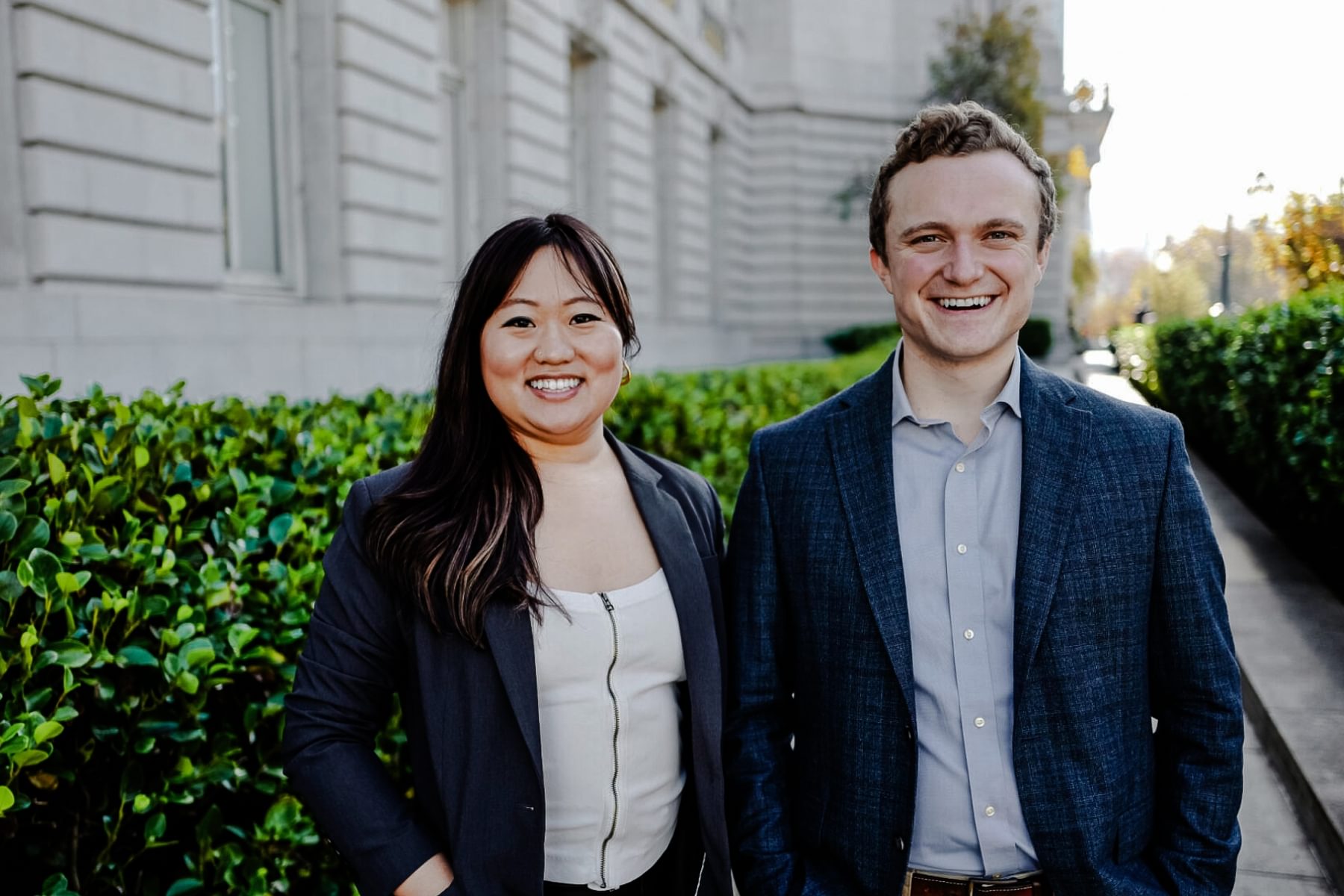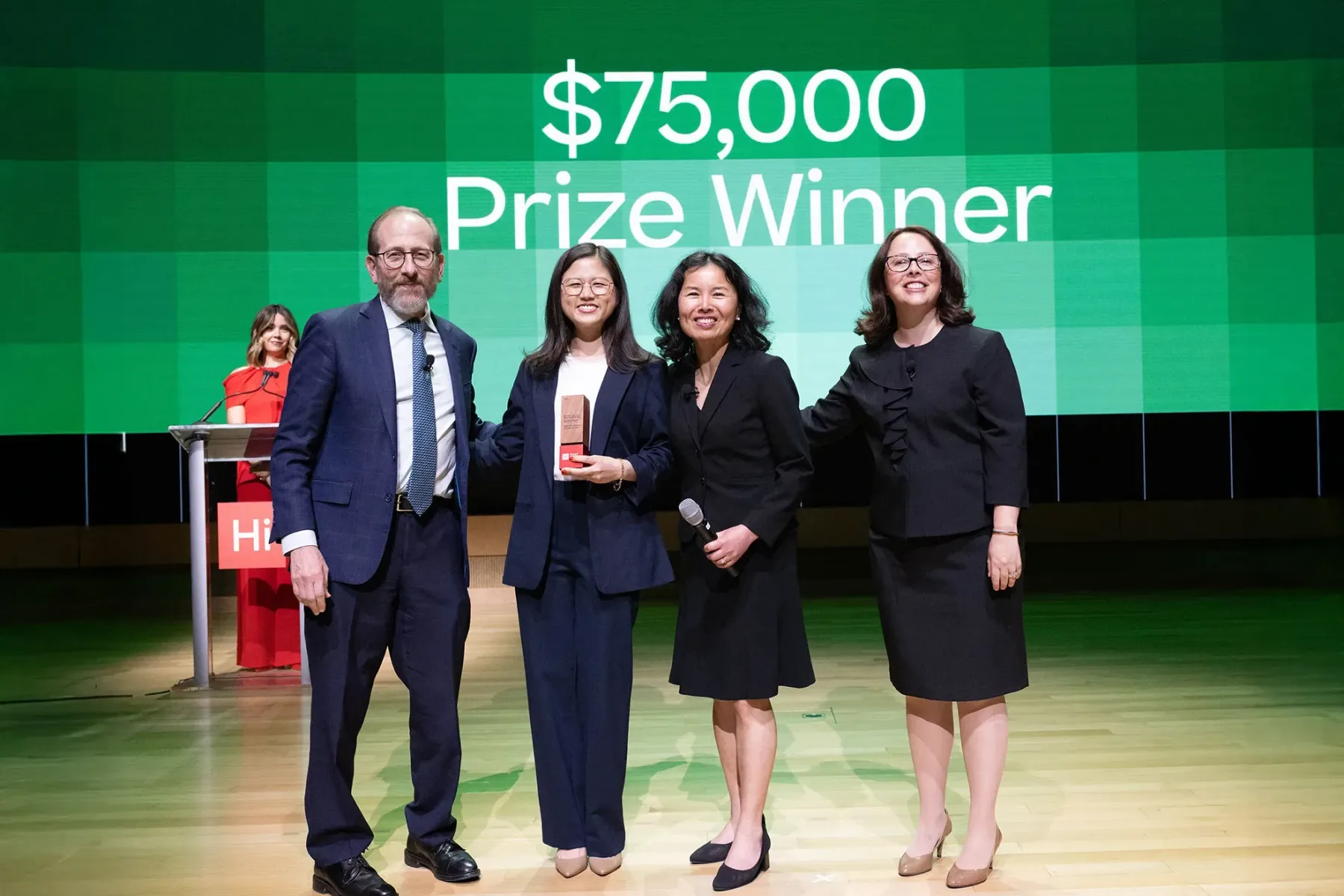On a Friday evening in June, Rebekah Emanuel, senior advisor for social impact at the Harvard Innovation Labs, was getting her kids situated around the dinner table when her WhatsApp notifications started buzzing. Two founders whom she’d been advising through Launch Lab X GEO, Harvard Innovation Labs' alumni accelerator, had been selected for the Mulago Foundation’s Rainer Arnhold Fellowship, which supports ventures with promising poverty solutions.
Out of hundreds of applicants, Nikki Okrah (HBS 2021) of Chaku Foods — a company that increases incomes for Ghanaian farmers by mapping, predicting, and collecting their crops — and Richa Gupta (HGSE 2021) of Labhya — educational programming for vulnerable kids in India — had each earned one of 11 spots designed to help founders build high-impact, scalable strategies as part of a growing community of innovators in global development. Mulago looks for founders with big ideas for solving big poverty problems in Sub-Saharan Africa or Asia with the potential to scale. The year-long fellowship combines $100,000 in funding with workshops, mentorship, and other shared resources.
Teaching and trauma in India
Gupta started Labhya when she was just 19 years old, after four years of teaching with grassroots organizations like Teach for India, where she realized that traumatic events outside the classroom put her students at a disadvantage when it came to their education. Today, through partnering with governments, Labhya’s emotional wellbeing programs reach more than 2.4 million vulnerable children across India.
“They were dealing with so much,” recalls Gupta of her students struggling in poverty. “Violence, substance abuse, disease — it was an incredible barrier to learning. And over the years, I lost multiple students to the helplessness of not being able to cope.” The experience pushed her to think more deeply about her purpose, about children’s mental health, and the need to systematically invest in student wellbeing. “When I zoomed out, I saw there are almost 190 million kids living in poverty and attending school — they don't have a level playing field with the rest of the world,” she adds. “They witness harm on a regular basis, but when they come to school, it's only focused on literacy.”

That’s when she started Labhya, in 2017, with two other founders, and got to work creating programs and partnerships to teach students the social and emotional skills needed to overcome the negative impacts of growing up in poverty. Three years later, after earning a scholarship to attend the Harvard Graduate School of Education, Gupta brought her venture to the i-lab — where she was awarded a grant from the Social Impact Fellowship Fund and found a mentor in Emanuel, who today sits on Labhya’s board. She also eventually met Nikki Okrah, another female founder focused on poverty solutions, but in Ghana. “With Rebekah’s guidance, wisdom, and community, we were able to articulate Labhya’s impact so well, which led us to win several entrepreneurship competitions at Harvard and then serious grant capital from highly reputed foundations like the Draper Richards Kaplan Foundation,” says Gupta.
“The Harvard Innovation Labs was catalytic for Labhya's journey. I first came to the i-lab in 2020 when I was a student at the Harvard Graduate School of Education. There were so many wonderful resources that enabled us to really catapult Labbhya's journey: all the competitions, and the pitch sessions that helped us refine our pitch and articulate the work that we do. Being part of the i-lab gave us access to the capital we needed to move forward during some of the most crucial years at Labhya.” — Richa Gupta, founder, Labhya
Boosting commercial farming in Ghana
Okrah was a grand prize winner in the 2021 President’s Innovation Challenge. Her venture, Chaku Foods, aims to grow the commercial farming sector in Ghana by reinvesting in the local supply chain — while producing and exporting high-quality, organic foods. After she won the PIC, venture capital interest started pouring in, she says. But VCs were mainly interested in growing topline distribution channels for Okrah’s products, while her major focus was improving the livelihood of local farmers. “So there was a mismatch,” she says. That’s when her i-lab advisor, Emanuel, introduced her to Mulago, part of Big Bang Philanthropy, a consortium of funders fighting poverty. “Rebekah taught me that there are other channels I can pursue — other organizations that better align with my mission. She said that if VC doesn’t align with my mission, venture philanthropy can provide resources and help with scaling my model,” Okrah recalls. Once she looked into the portfolio of ventures that Mulago and Big Bang have supported over several decades, she knew it was the place for her.

When it came time to apply, Okrah leaned on fellow i-lab alum and PIC winner Pelkins Ajanoh (MS/MBA 2022), whose venture CassVita uses proprietary post-harvest technology to increase the shelf-life of cassava to foster sustainable livelihoods for cassava farmers in Africa. “We’ve been rooting for each other a lot,” Okrah says. “We’ve been lifting as we climb the ladder of third-party validation of our businesses outside of the i-lab, through funds like Mulago.”
“It’s important to know where you want to go, so that you can ask the right questions to get you there. If I wasn't on the ground in Ghana to see all the things that were happening here, I wouldn’t understand the nuances or know where I need to fill in the gaps; I wouldn’t have learned what questions to ask. And don't be shy about highlighting what you're doing, what you're building, and where you want to take it. Talk to other founders and seek the highest levels of support.” — Nikki Okrah, founder, Chaku Foods
Finding champions in i-lab colleagues
It’s exactly this type of camaraderie and support that surprised Gupta most when she first brought Labhya to the i-lab. “Coming from India, I grew up in a school where competition was a very prevalent feeling,” she says. “When I came into the i-lab and saw people actually helping each other, it was very powerful for me. It's been extremely empowering to find genuine support within the entrepreneur community through the i-lab.” Okrah has been one of those champions for her, Gupta says, and she’s grateful that they’ll be going through the Mulago fellowship together: “What has been even more empowering is having another woman entrepreneur who’s on a similar journey,” Gupta adds.
Okrah agrees: “When you get into these entrepreneurial spaces, there are not a lot of women — especially women of color. So to see Richa here and so many other women in our cohort, I knew this was the right fund and the right space for me, because I feel comfortable. I see myself reflected. I feel empowered.”





